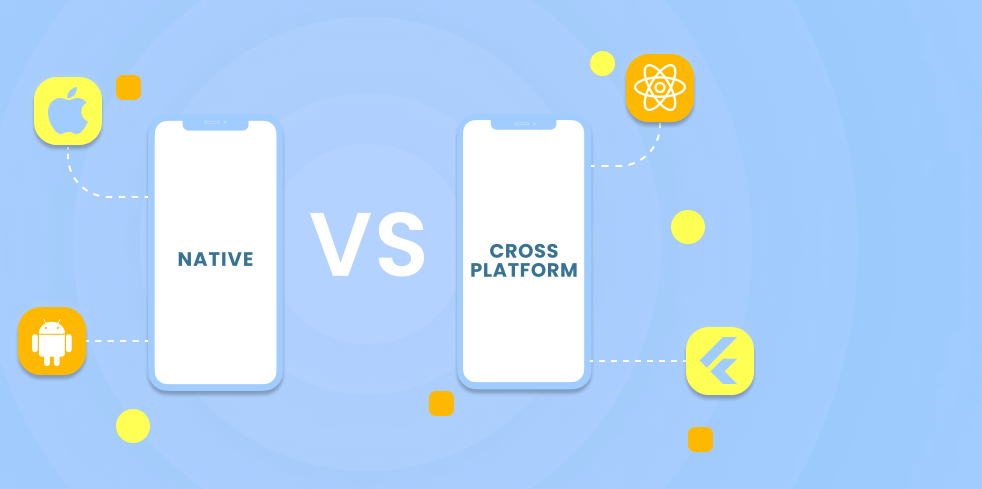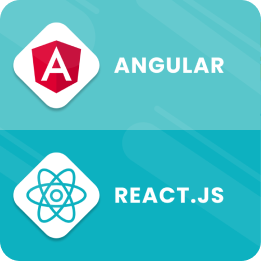The debate between Native and Cross platform is an old one. Native apps are exclusively designed for a specific platform be it Android or iOS. The apps working on iOS will never work on Android devices. If you are using native application, it costs you both time and money because you separately pay for both Android and iOS development. So, why choose an application that works on only one operating system?
Meanwhile, cross platform applications are not specifically built to work on a particular operating system. Also there is a great beneficial difference of cost between cross platform and native application which shifts the attention of start-ups towards cross platform app development. Pull yourself together and let’s try to analyse each of them and meanwhile let the chips fall where they may.
Why go for Native App development?
A number of businesses prefer building apps on native platforms because of UI/UX features. Native apps utilize capabilities provided by the operating system thereby, having less performance issues such as lags, bugs, crashing or not launching to begin with. These factors make it easy for developers to use native approaches in building complex applications with the fear of app failure.
Native code has a direct link with device features and operating system, app builders become capable of developing UI according to the code command and support familiar components and layouts. Native apps work better and quicker which adds to their usability rendering it pretty easier for users to use.
Native apps are developed keeping one operating system in mind, hence they can easily interact with device’s inbuilt feature unlike cross-platform. Also it has a single set of tools, framework, instrument to deliver applications for one platform. For example: Kotlin/Java for Android app and Objective C/Swift for iOS app.
Cost and budget is one of the most important things related to creating an application. Developing an app specific to the operating system is neither easy nor time effective. Native apps demand the entire process of designing, coding, debugging etc. twice, hence increasing the cost.
If you are creating an app with native language, you have to create two versions- one for each operating system, which will require two developers to create the same application.

Achieve much more in Cross-platform
In cross platform, through React Native app development or Flutter app development, you write a single code that works on both Apple and Android devices, the total app development time cuts down by 50%. You can put your time and money towards one app, using one cross platform language and then publish updates on both operating systems at the same time, hence reducing the cost.
Since only one code version needs to be checked from developer’s end, it is easy to find bugs, correct them and push the app in the market. These further cuts down the cost and testing hours.
You are live on both App store and Play store simultaneously resulting in a greater user base where your business is not confined to any particular geographical region. Flutter requires you to make a single design, write single code, and test once before deployment. This reduces the number of resources to manage the entire development process.
Cross-platform mobile applications are compatible with various plugins integrated with cloud, thus a single source code coordinates with various plug-ins and extensions to enhance the app’s scalability.
React Native, an open-source framework for cross platform application development allows developers to create cross-platform iOS and Android applications using JavaScript. Using React Native, the resultant application’s UI is 100% native which means you don’t have to worry about compromising with HTML5-based UI.
Choose depending on your Business
Native app development is the way to go at the moment. However, cross-platform environments/apps are really making a comeback and can be primarily used in the near future. Clients are happy with good looking and better usability of products. We developed Moked, a security-centered notification application developed on cross-platform that enables site officers to manage and monitor the security of multiple sites on a single page. Start-ups who need to deliver applications to many platforms prefer cross-platform for application development. Our Zipper mobile application developed on cross-platform helps you discover and connect with new people of your interest. At Zangula, we develop both native and cross-platform applications based on client’s business requirements. Over the years, we have earned expertise in mobile development since we rely on the most advanced development tools and technologies to deliver best solutions.
Similar Blogs

5 Mobile App Development Trends
We have come a long way since those old apps. Mobile Applica Read more















